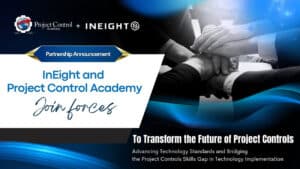When we think of leadership, most people immediately think of a title—manager, CEO, or director. But I’m here to tell you that leadership has nothing to do with titles. In fact, some of the most impactful leaders I’ve come across in my life and work never had an official title. Leadership is about influence, passion, and purpose. It’s about inspiring others to take action, not because they have to, but because they believe in the vision you’re painting.
In my journey, I’ve learned that you don’t need a title to be a leader. You can lead right from where you are, no matter your role or position. Leadership is a mindset, not a label.
The Power of Title-Less Leadership
Early in my career, I saw firsthand how people with formal titles sometimes struggled to lead effectively, while others without those titles naturally inspired and motivated their peers. It’s easy to fall into the trap of thinking that you need a certain rank to make a difference, but the truth is, leadership starts with the person, not the position.
So why does leading without a title matter?
- 1. Faster Decision-Making: When we empower people at all levels to take the lead, decisions can be made more quickly, without waiting for permission from someone at the top.
- 2. Empowered Teams: Imagine a team where everyone feels responsible for the outcome. That’s the power of leading without a title—everyone takes ownership.
- 3. Culture of Innovation: When you lead from where you are, you encourage others to take risks and share new ideas. This leads to a culture that thrives on innovation and collaboration.
I’ve witnessed teams transform simply because individuals—without any official leadership role—stepped up, took initiative, and made things happen. The results are always extraordinary when people realize they don’t need permission to lead.
How to Lead Without a Title
If you’re wondering how to start leading today, I’m going to share some practical steps that have worked for me and many others I’ve coached.
1. Take Ownership of Your Work
Leadership begins with ownership. When you take full responsibility for your tasks and go above and beyond, you automatically inspire others to do the same. Early in my career, I found that by owning my work—whether it was my specific job or not—people started to come to me for advice, guidance, and support. Suddenly, without having an official title, I became a leader.
2. Build Genuine Relationships
Leadership is all about influence, and influence comes from trust. You build trust through authentic, meaningful relationships. When you take the time to truly listen to your colleagues, understand their challenges, and help them succeed, they will naturally start to follow your lead. I’ve found that investing in relationships is one of the most powerful ways to lead without a title.
3. Be a Problem-Solver
We all know people who point out problems but never propose solutions. Leaders, on the other hand, are solution oriented. Don’t wait for someone else to step in and fix the issue—take the initiative and offer solutions. I can’t tell you how many times this approach has opened doors for me. When you become known as someone who finds answers rather than just highlighting problems, your leadership will be recognized naturally.
4. Act as a Mentor
You don’t need a formal role to mentor others. One of the simplest ways to lead is by sharing your knowledge and experiences with those around you. I’ve always believed in the power of mentoring—whether it’s guiding a colleague on a project or helping someone navigate a difficult situation. By showing that you care about the growth and development of others, you inspire them to lead as well.
5. Communicate Effectively
One of the things I’ve learned over the years is that clear, positive communication is essential for leadership. Whether you’re navigating a conflict or rallying a team around a shared goal, the way you communicate can either build trust or erode it. Be mindful of how you communicate, and always aim to foster openness and collaboration.
Characteristics of a Title-Less Leader
Leading without a title requires certain qualities that I’ve seen time and again in the most effective leaders. These traits are what set title-less leaders apart:
1. Emotional Intelligence (EI)
Emotional intelligence is the foundation of leadership. It’s about being aware of your own emotions and those of the people around you. When you’re able to manage your emotions and empathize with others, you naturally build trust and influence. For me, this has always been a crucial part of connecting with my teams and colleagues.
2. Vision
Even if you don’t have a title, you can still have a vision. I’ve always believed that vision is what unites people around a common goal. It’s like adding water to a recipe—it brings all the ingredients together. A clear vision gives people a reason to follow, and when you share that vision with enthusiasm, you inspire others to take action.
3. Integrity
Leading without a title means earning respect through your actions. It’s about doing the right thing, even when no one is watching. I’ve found that people naturally gravitate toward leaders who are consistent, ethical, and true to their word. Integrity isn’t just a leadership trait—it’s the foundation of long-lasting influence.
4. Initiative
Leaders without titles don’t wait for someone to tell them what to do—they step up. Whether it’s suggesting a new approach, tackling a tough problem, or simply helping out when needed, taking initiative shows others that you care about the outcome. In my experience, when you consistently take initiative, leadership opportunities present themselves.
5. Adaptability
The world is constantly changing, and leaders must be adaptable. Over the years, I’ve learned that being open to change and willing to try new things is key to staying relevant and effective as a leader. Embrace change as an opportunity to grow and innovate.
Challenges of Leading Without a Title
Let me be honest—leading without a title isn’t always easy. There are times when you might feel undervalued or face resistance from others. I’ve experienced this myself. It’s natural to want recognition, but I’ve learned that leadership is more about the impact you make than the accolades you receive. Stay focused on how you can influence others positively, and trust that recognition will come in time.
Another challenge is navigating office politics. Without a formal title, some people may question your authority or hesitate to follow your lead. My advice? Stay consistent. People will come to respect your leadership through your actions, not your title.
Conclusion: Leadership is About Impact, Not Titles
At the end of the day, leadership is not about the title you hold; it’s about the difference you make. Whether you’re at the top of an organization or just starting out, you can lead by being proactive, building trust, and staying true to your values. Every day presents opportunities to lead, and when you embrace those opportunities, your influence will grow naturally.
Are you ready to take your leadership to the next level?
I invite you to join my Masterclass on the Recipe for Leadership Success, where I’ll share more insights on how you can lead authentically, no matter your position or title.
About The Author: Kamran Akbarzadeh
Dr. Kamran Akbarzadeh is the dynamic CEO of Project Control Academy, the author of the award-winning books “Leadership Soup” and “Get What You Want,” and an advocate of leadership without title.
Leading the academy with strategic foresight, Dr. Akbarzadeh is dedicated to charting a course that delivers exceptional value to project professionals across the globe. His varied career encompasses notable positions in large corporations as a project manager, subject matter expert, program leader, and partnership advisor, alongside his achievements as a groundbreaking entrepreneur and coach.
Passionate about inspiring individuals and businesses to overcome challenges, achieve their aspirations, and accelerate their success, Dr. Akbarzadeh commits himself to coaching and training that transforms performance. He specializes in guiding project professionals to refine their leadership qualities and interpersonal skills, fostering both personal and career advancements.
Dr. Akbarzadeh holds a PhD in Chemical Engineering, a PMP certification from the Project Management Institute, and the distinguished title of Toastmaster (DTM) with Toastmasters International, reflecting his dedication to leadership and effective communication.
To learn more about Kamran, please visit his profile on LinkedIn.


![[Free 90-min Masterclass] The Ultimate Leadership Recipe for Project Professionals](https://www.projectcontrolacademy.com/wp-content/uploads/2024/08/4-1024x576.jpg)



















